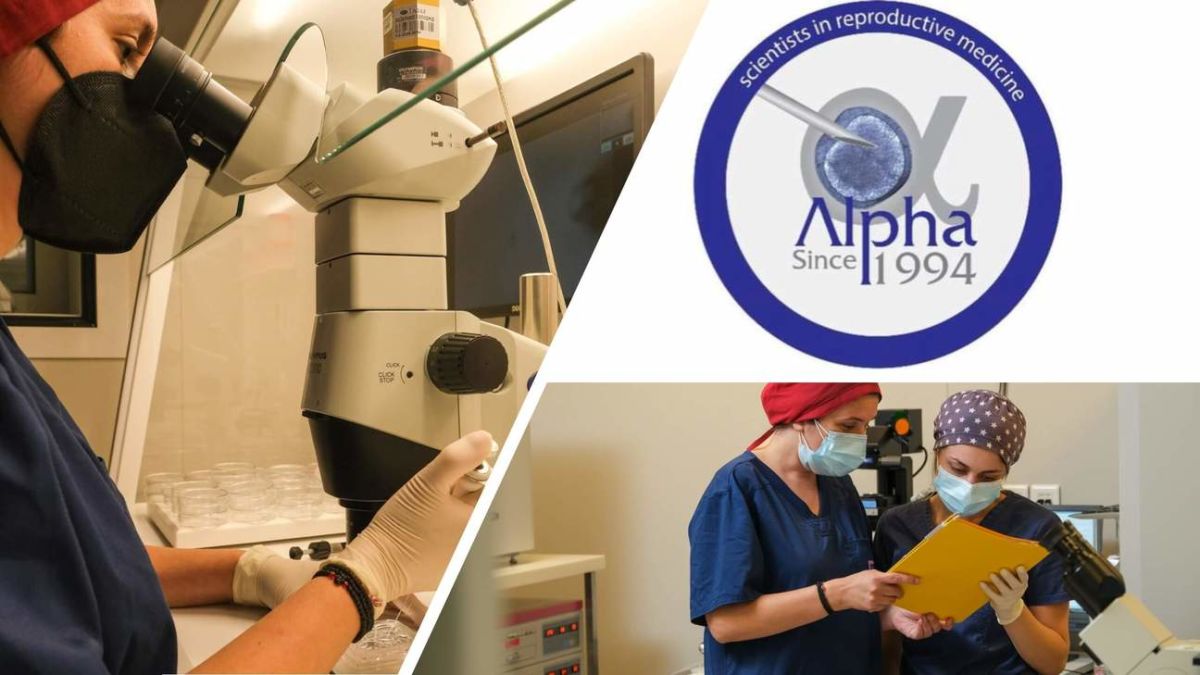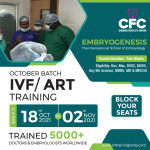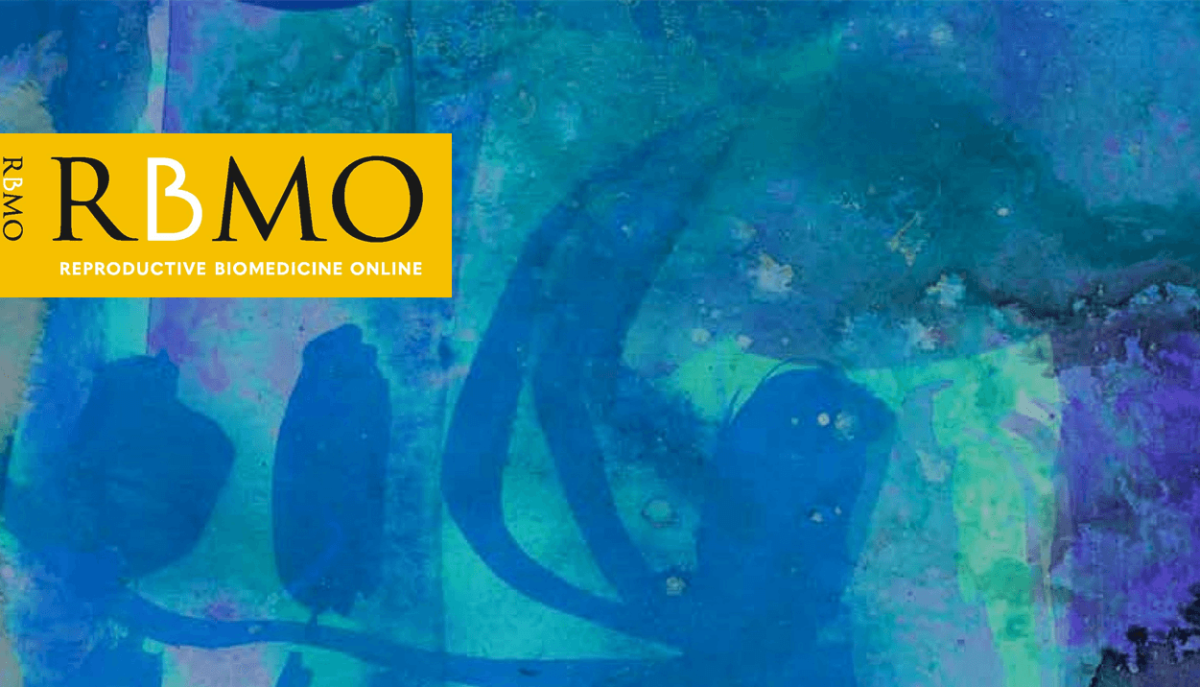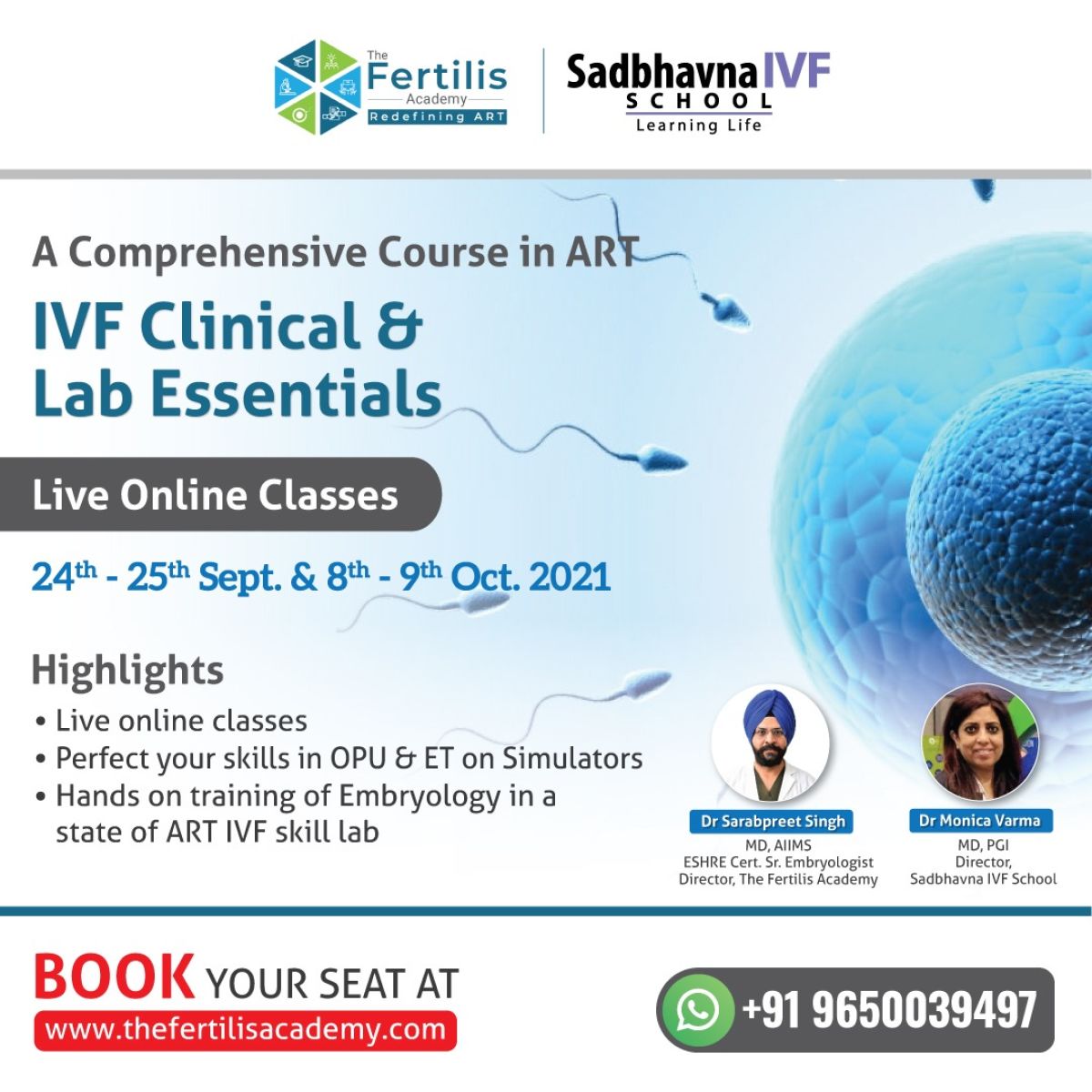
IVF NewsWebinar: Spermatology as a tool in the conservation of wildlife.
MICROPTIC 29 September 2021

Microptic organizes a new free webinar on September 30th: Spermatology as a tool in the conservation of wildlife. Main topics:
By Prof Gerhard van der Horst (PhD, PhD) FREE webinar Thursday 30 September, 12.00 noon (UTC + 2) (See time converter here) Duration: 30 minutes + Q&A time / Language: English Register HERE
MICROPTIC Masterclass becomes established as a model in online education Microptic, specialized in biomedicine, introduced MICROPTIC Masterclass: a series of free webinars about different topics in order to disseminate quality knowledge to healthcare and lab professionals. After more than a year, MICROPTIC Masterclass is now a model in online education in the field of semen analysis and genetics. Periodically, the company organizes these live sessions, given by different experts, and with the possibility of asking and comment by attendees. Furthermore, all the video recordings are available on Microptic website for free. Standard courses In addition, Microptic offers training courses and workshops to professionals and distributors. This learning concept includes courses at different levels – taught by biologists – and hands-on training with fresh sample. Microptic training courses are customized to the needs and requirements of participants. For more information, visit: https://www.micropticsl.com/ [ Full Article ] News: DRIVING EFFICIENCIES IN IVF UPWARDS
International IVF Initiative 27 September 2021

Tuesday 28th September, 2021. 3PM EST/ 8PM GMT / 9PM CET [ Full Article ] News: Embryo-like structures created out of human stem cells
Christina Burke 27 September 2021
A new model of the human embryo made from stem cells has been developed by researchers in the USA. Researchers have successfully shown that a method previously used for forming embryo-like structures in vitro using mouse stem cells, can be used to form embryo-like structures using a specialised type of human stem cell. Until recently, the study of human embryo development has largely relied on embryos voluntarily donated following IVF. To create the 3D model, researchers used human pluripotent stem cells (hPSCs) derived from embryonic cells which were then expanded in vitro. Remarkably, the stem cells retained the ability to self-organise into embryo-like structures. 'The ability to assemble the basic structure of the embryo seems to be a built-in property of these earliest embryonic cells that they are simply unable to "forget"', explained senior author Professor Magdalena Zernicka-Goetz at the California Institute of Technology. 'Nevertheless, either their memory is not absolutely precise or we don't yet have the best method of helping the cells recover their memories,' she clarified, referring to differences observed between the embryo-like structures and naturally formed human embryos. Published in Nature Communications, the findings build on an array of recent studies modelling early embryo development with different types of stem cell. The authors used hPSCs to recapitulate embryo development up until blastocyst formation, which occurs prior to implantation on the uterus wall. Their aim was to assess how closely the model could follow normal embryo development, where an initial cell mass differentiates into three cell lineages from which all human cells are derived. Using RNA sequencing, Professor Zernicka-Goetz and her team compared each cell type in their model with their counterparts in natural embryos. They found that at most, roughly half of genes were expressed at comparable levels with natural human blastocysts, with no cell type expressing the full range of expected genetic markers. The team was unable to 'rescue' the developmental pathway by mixing the stem cells with fresh human embryo cells, which has previously worked in mouse models. 'We still have further work to do... to achieve the developmental accuracy that is possible with their equivalent mouse stem cell counterparts,' acknowledged Professor Zernicka-Goetz. Despite genetic differences, the embryo models still appeared and behaved very similarly to early human embryos. Being derived entirely from stem cells, these models may also circumvent the strict 14-day limit on embryo study issued by the International Society for Stem Cell Research, which has recently updated its guidelines to account for advances in stem cell research. SOURCES & REFERENCES
[ Full Article ] Webinar: KPIS - KEEP PLODDING INDEFINITELY OR KEEP PERFORMING IMPECCABLY?!
International IVF Initiative 20 September 2021

Tuesday 21st September, 2021. 3PM EST/ 8PM GMT / 9PM CET Please join Alpha Scientists in Reproductive Medicine as we explore how to capitalize on all that lab data we collect, and how to make it work for us. Moderators: [ Full Article ] News: Preimplantation signalling system discovered in human embryos
Laxmee Ramkhelawon 20 September 2021
Human embryos can show an innate immune response when exposed to pathogens, as early as day five, researchers in the UK have found. New research conducted by scientists at the University of Manchester and Manchester University NHS Foundation Trust has shown preimplantation human embryos express a protein that detects bacteria and viruses, triggering an immune response and thereby demonstrating innate immunity. These proteins are coded for in our genes which means they are considered part of our 'innate' immune system. 'Early human embryos are highly sensitive to their local environment, however before this study, relatively little was known about how they detect and respond to specific environmental cues,' said Professor Daniel Brison, scientific director at the Department of Reproductive Medicine at Saint Mary's Hospital, Manchester and lead author of the study. He added: 'We already knew that embryos communicate with mum when they begin to implant, but we don't know why this new signaling happens.' Scientists looked at toll-like receptors (TLRs) which are a class of proteins that play a key role in our immune system. Previous studies have shown that TLRs are expressed in the fallopian tube and vagina. Published in the journal Human Reproduction, the research team was the first to report expression of the TLR system in human embryos. These findings suggest that the TLR system is active in human embryos and may play a role in inducing an inflammatory response in the maternal tract in response to pathogens, such as bacteria and viruses, or in modulating the implantation and initiating pregnancy. The team cultured 25 five-day old human embryos in the presence of substances known to trigger a response in TLR receptors, during embryo development up to day six. Gene expression and mRNA profiles were used to confirm that the cells in the embryo had initiated the TLR system immune response. One reason given by the authors for the study was to ascertain whether 'impurities' that embryos come into contact with when being cultured in vitro for IVF can stimulate immune receptors. They call for future consideration of immunogenicity of cell culture components used in IVF, in light of their findings. '[Our research] might one day shine a light on infertility: why some embryos do not implant into the uterus or even help us to identify the quality of IVF embryos developing in culture,' said Professor Brison. The department where this research was conducted carries out IVF on the NHS and was at risk of closure more than a year ago after the hospital could not afford a £10 million refurbishment. SOURCES & REFERENCES
[ Full Article ] Announcement: MSc in Clinical Embryology - Applications for entry in October 2022
Laura Rose 15 September 2021

The closing date for applications for the MSc in Clinical Embryology course starting in October 2022 is 12 noon BST (UK time) on Friday 15th July 2022. This one year, residential, taught MSc provides graduate students, scientists and clinicians with highly advanced theoretical and practical understanding of human reproductive biology, embryology, infertility and assisted reproductive technology (ART) along with intensive ‘hands-on’ practical training in essential laboratory skills and the sophisticated gamete micromanipulation techniques associated with ART. The department's aim is to inspire, motivate and train a network of future leaders in clinical embryology throughout the world. For details of how apply including the admissions criteria please see our admissions page: http://www.ox.ac.uk/admissions/graduate/courses/msc-clinical-embryology For further information please contact the Course Administrator: [email protected] Follow us on Twitter: @Ox_MSc_ClinEmb Photographs: © Medical Sciences Division and John Cairns [ Full Article ] News: ART & Embryology training program
Chennai Fertility Center and Research Institute 15 September 2021

October 2021 training batch schedule - Oct 18th, 2021 - 2nd Nov 2021 The International School of Embryology was established to offer training for clinicians in advanced reproductive technologies. Our skill and precision to all aspirants help them to know in-depth knowledge and experience. The members of our teaching faculty aim to bring doctors and embryologists to the highest level of knowledge about reproductive techniques and practical capability in the field. Our courses cover basics in Andrology, embryology, ICSI, and cryosciences (Hands-on). Limited Seats. For admission Contact 9003111598 [ Full Article ] Webinar: RBMO: EPISODE III
International IVF Initiative 13 September 2021

Tuesday 14th September, 2021. 3PM EST/ 8PM GMT / 9PM CET Moderators: Prof. Bart Fauser & Prof. Nick Macklon [ Full Article ] News: Functional sperm developed from mouse pluripotent stem cells
Purvi Shah 13 September 2021
Researchers in Japan have successfully demonstrated the development of functional sperm cells that develop into fertile offspring from pluripotent embryonic stem cells, in mice. This latest breakthrough recreates the distinct stages of sperm development from a primordial germ cell-like cell, through the stages of sperm development known as spermatogenesis into a sperm that can be used to create viable and fertile offspring. Researchers from the ASHBi Institute for the Advanced Study of Human Biology in Kyoto, Japan demonstrated their model worked in vitro and in vivo, in a breakthrough for in vitro gametogenesis, as previous work had not recreated the development of sperm entirely in vitro. Earlier this year mouse egg cells were developed from mouse stem cells entirely in vitro. 'This is the first study to reconstitute functional sperm from mouse pluripotent stem cells in a test tube. This opens new possibilities for male germ cell differentiation,' said ASHBi director Professor Mitinori Saitou. Germ cells remain difficult to generate from pluripotent stem cells, due to the complex differentiation processes they undergo to form gametes which have just half the chromosomes of other cells, via meiosis. To achieve a reliable process researchers attempted to mimic the three essential stages that occur in the testes. Firstly, the stem cells are differentiated into primordial germ cells, then into spermatogonia stem cells, and finally sperm. It is the second stage of this process which has been a key challenge to replicate in the laboratory. The study used mouse embryonic stem cells which were induced to form primordial germ cell-like cells. Ten thousand of these were examined under eight different conditions. To determine the conditions that were best for manufacturing spermatogonia stem cells, they looked at the expression of key genes and markers of cell activity. Researchers then used these optimal conditions to recreate spermatogenesis both on transplantation into testes in vivo and in a culture of testes transplants in vitro. The resulting sperm did not have tails but using spermatid injection they were able to fertilise an egg and create embryos that resulted in viable fertile offspring. Epigenetic differences due to high levels of methylation were observed in the sperm that were created using this method, and further research needs to be done into the impact of this on resulting offspring, the researchers wrote in the paper published in the journal Cell Stem Cell. SOURCES & REFERENCES
[ Full Article ] Course: IVF Clinical and Lab Essentials: A Comprehensive Course
Dr. Sarabpreet Singh 07 September 2021

After conducting several online courses attended by students across the globe, The Fertilis Academy is organising a comprehensive course ‘IVF Clinical & Lab Essentials". This consists of live interactive online sessions with hands-on training in a state of the art IVF Skill Lab. This program is for Gynecologists, Embryologists, Andrologists, and IVF professionals planning to enhance their skills.
Hands-on Training Highlights Apply through the given link below- https://www.thefertilisacademy.com/ivf-clinical-lab-essentials/ Any query appreciated, please Call us: +91-9899009497 Explore more about us at www.thefertilisacademy.com **Certificate will be given at the end of the course. [ Full Article ] |